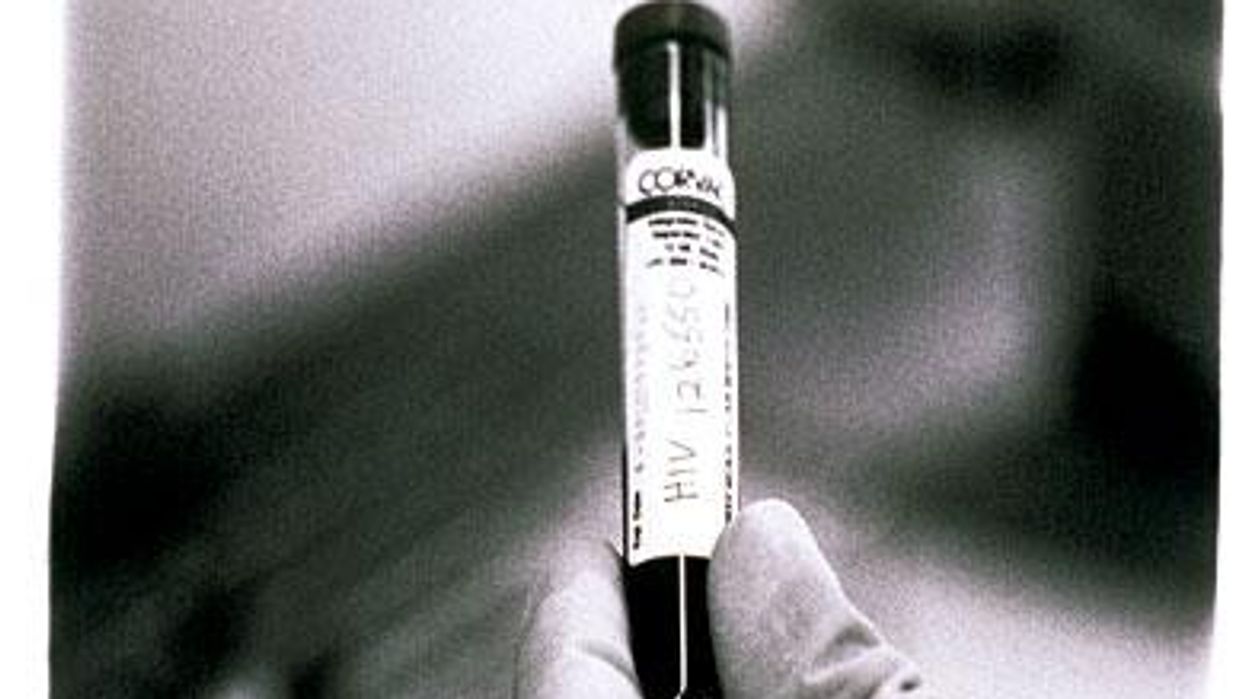CONTACTAbout UsCAREER OPPORTUNITIESADVERTISE WITH USPRIVACY POLICYPRIVACY PREFERENCESTERMS OF USELEGAL NOTICE
© 2025 Equal Entertainment LLC.
All Rights reserved
All Rights reserved
By continuing to use our site, you agree to our Privacy Policy and Terms of Use.
We need your help
Your support makes The Advocate's original LGBTQ+ reporting possible. Become a member today to help us continue this work.
Your support makes The Advocate's original LGBTQ+ reporting possible. Become a member today to help us continue this work.
After three decades, major developments in HIV treatment and prevention are finally moving forward at a steady pace -- two studies and one extraordinary patient have captured the attention of doctors and scientists, and made the idea of a cure less fantastical.
Doctors say American Timothy Ray Brown was indeed cured of HIV in Germany. The "Berlin Patient" was being treated for leukemia when he was given a bone marrow transplant using the stem cells of an HIV-resistant donor. More than two years after the transplant, his bloodstream is now free of HIV even though he's not taking antiretroviral drugs.
"Many of us view this as a unique case that's not [relatable] to people doing very well on medications," says Peter Anton, a professor of medicine at the University of California, Los Angeles. "However, it does provide proof that it's possible to eradicate HIV from the body. Until now we haven't had that proof because of concerns that there are hidden reservoirs [of HIV] as well as low levels of HIV replication we cannot detect."
There is also much excitement over microbicides, a new type of prevention method in the form of a gel applied vaginally or rectally to prevent infection, especially after last year's announcement that a vaginal gel containing the antiretroviral drug tenofovir had a 39% success rate among South African women. Further advances could boost those numbers, and more studies are under way. Human trials of a rectal microbicide will likely begin in two to three years.
"If you go to a bar and ask how many people know what a microbicide is, most people won't raise their hand," Anton says. "We want to change that."
Another breakthrough came out of a study on pre-exposure prophylaxis, or PrEP. Results showed that regular doses of the antiretroviral pill Truvada cut the HIV infection rate by 44% among a group of HIV-negative people, specifically men and transgender women who have sex with men. While Anton is heartened by the findings, he offers caveats, specifically about people preemptively taking PrEP without further confirmation of its success. The second major PrEP worry involves those who contract HIV while taking the regimen--there's a chance they could become resistant to other antiretroviral drugs.
"There are so many people who do not know their diagnosis," Anton says. "If they end up taking prevention medicines but are already HIV-positive, they could be [utilizing] single-drug therapy, which is a no-no. [To avoid drug resistance] HIV-positive people need combination drug therapy."
As studies on PrEP continue, regimen refinement is likely on the horizon.
"One of the efforts on the PrEP side was to study [preventive use] in a controlled setting so we could document whether you need it daily or weekly," Anton says. "This is going to be looked at further so we can give more informed guidelines than those out now."
From our Sponsors
Most Popular
Bizarre Epstein files reference to Trump, Putin, and oral sex with ‘Bubba’ draws scrutiny in Congress
November 14 2025 4:08 PM
True
Jeffrey Epstein’s brother says the ‘Bubba’ mentioned in Trump oral sex email is not Bill Clinton
November 16 2025 9:15 AM
True
Watch Now: Pride Today
Latest Stories
Is Texas using driver's license data to track transgender residents?
December 15 2025 6:46 PM
Rachel Maddow on standing up to government lies and her Walter Cronkite Award
December 15 2025 3:53 PM
Beloved gay 'General Hospital' star Anthony Geary dies at age 78
December 15 2025 2:07 PM
Rob Reiner deserves a place in queer TV history for Mike 'Meathead' Stivic in 'All in the Family'
December 15 2025 1:30 PM
Culver City elects first out gay mayor — and Elphaba helped celebrate
December 15 2025 1:08 PM
Texas city cancels 2026 Pride after local council rescinds LGBTQ+ protections
December 15 2025 12:55 PM
North Carolina county dissolves library board for refusing to toss book about a trans kid
December 15 2025 11:45 AM
Florida and Texas launch 'legal attack' in push to restrict abortion medication nationally
December 15 2025 11:18 AM
No, Crumbl is not Crumbl-ing, gay CEO Sawyer Hemsley says
December 15 2025 10:12 AM
11 times Donald Trump has randomly brought up his ‘transgender for everybody’ obsession
December 15 2025 9:22 AM




































































Charlie Kirk DID say stoning gay people was the 'perfect law' — and these other heinous quotes